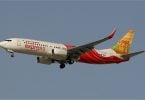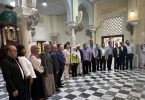According to aviation experts at the Southern African Industrialization Forum (SAIF) held in Sandton, the economic potential of the Southern African Development Community (SADC) is being hindered by burdensome aviation regulations, restrictive visa requirements, and a dearth of cross-industry collaboration.
The absence of efficient movement of people and goods undermines the credibility of discussions on a free trade area and regional integration, stated the Tourism Alliance Lead of the SADC Business Council. The current condition of aviation within the SADC region severely hampers our economies, resulting in a significant setback.
Panelists highlighted challenges that airlines, investors, and travelers face within the region:
Regulatory bottlenecks
The airline industry faces unnecessary complexity and operational costs due to fragmented regulations, inconsistent bilateral agreements, and disharmonized licensing requirements for pilots.
Dr. Namhla Tshetu, Airlink Executive Manager Corporate Services, stated that in order to enhance connectivity in the SADC aviation sector, it is necessary to align regulations among countries.
Though the preservation of a nation’s sovereignty holds significance, the lack of synchronization in regulations poses a hindrance to cooperation on regional routes. To overcome this obstacle, it is crucial to establish commonalities, adhere to global standards, and primarily take into account the perspectives of airlines when developing bilateral agreements or policies that affect operations.
In order to ensure efficient cross-border operations and avoid ineffective regulations, it is crucial for airlines to have a significant role in the development of aviation rules. When airlines are not adequately involved in this process, regulations can hinder connectivity and the establishment of integrated air networks in the SADC region. Increasing airline participation is essential for unlocking connectivity and creating viable air networks across the region.
Visa restrictions
The cumbersome visa regulations imposed on numerous SADC citizens travelling within the region hinder tourism, business activities, and the unrestricted flow of labor. Additionally, the limited visa accessibility undermines SADC’s competitiveness as an attractive destination for travel and investment.
The existence of a free and unhindered movement of Africans within Africa is crucial for all our aspirations to be realized. It is perplexing to witness that in the year 2024, a staggering 45% of African nations still require visas for their citizens to travel to other African countries, while 23 of these same African countries offer visa-free entry to Americans,said Aaron Munetsi, CEO of the Airline Association of Southern Africa.
Limited collaboration
The lack of coordination between aviation, tourism, and other industries often creates barriers to successful route development and a unified tourism experience. The key to solving problems related to sustainable routes and global promotion of the region lies in fostering collaboration.
Successful route development encompasses more than simply introducing new routes. It entails working together with stakeholders to ensure the growth and longevity of existing routes, which may involve enhancing flight frequency, passenger volumes, or aircraft capacity to sustain demand.
Airlines like Airlink, with a diverse fleet suited for ‘thin routes’ have an advantage here, whereas an airline like FlySafair running large 737-800s cannot viably serve some lower-volume regional routes without 5th Freedom Rights. The objective is to raise the proportion of 5th freedom routes from the current 15% to 30% by 2025, with the aim of utilizing liberalization to stimulate economic growth in the aviation sector.
Working in silos is the biggest challenge for the sector, added George Mothema, CEO of the Board of Airline Representatives of South Africa. “In terms of bilateral negotiations, we would like to see the airlines be more involved, as they are a critical player in the sector.”
High taxes and fees
SADC’s regional competitiveness is hindered by high charges, airport taxes, and fuel levies, which discourage airlines and increase costs for travelers and businesses.
Tourism growth in the region is being hindered by excessively expensive airfares, which present a significant obstacle for governments aiming to promote their countries as appealing destinations. The unaffordable flights serve as a major barrier, restricting the number of visitors and their spending potential. Consequently, without accessible air transportation options, the tourism sectors are unable to flourish.
Mindset shift
All involved parties, including governmental bodies and businesses, must fully acknowledge the inherent relationship between aviation and other sectors of the economy, recognizing the broader scope of regional progress. Aviation should not be regarded as a mere luxury, but rather as a crucial component driving economic growth within a contemporary region. It is imperative to establish harmonized regulations, promote open skies to enhance competition, and implement a regional visa system to unleash the complete potential of both the people and markets within the SADC region.
Experts emphasised the need for comprehensive policy reforms, with the adoption of the Single African Air Transport Market (SAATM) initiative, public-private partnerships for infrastructure development, and creating a conducive environment for airlines to operate seen as essential steps.
Collaborative problem-solving in addressing the complex difficulties associated with developing top-notch aviation infrastructure throughout SADC is vital. The ultimate goal is to establish a fully integrated network that enables effortless movement of goods and people across African skies. To achieve this, it is essential to engage all key stakeholders, including National Tourism Organizations, Regulators, Airlines, and Private Sector Tourism Stakeholders.
(eTN): Aviation Leaders Call for Liberalization of Southern African Skies | re-post license | post content























